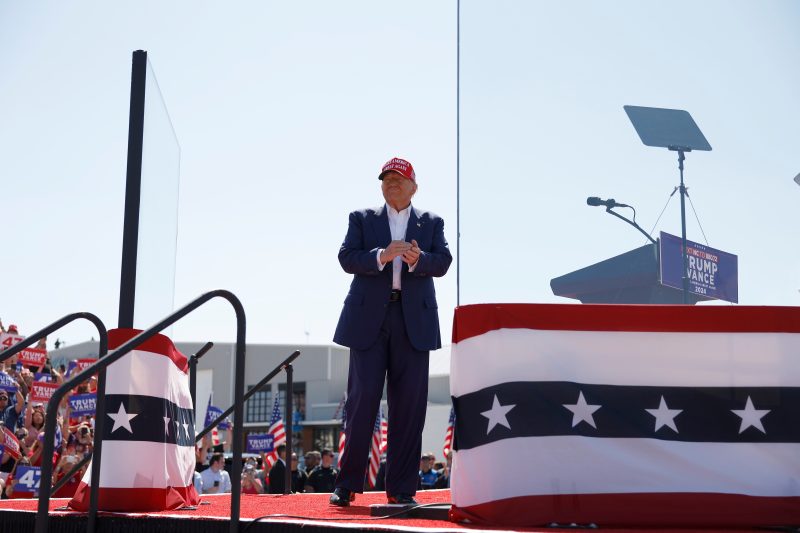In a recent North Carolina rally, former President Donald Trump seemingly sidestepped addressing Mark Robinson, the state’s lieutenant governor, despite Robinson being embroiled in controversy. Robinson, a rising Republican star known for his outspoken conservative views, has faced scrutiny over various allegations and statements made during his tenure.
One of the primary criticisms Robinson has faced relates to his comments on LGBTQ+ issues. Despite holding a position of power that requires representing all constituents, Robinson has made controversial remarks that have sparked backlash from advocacy groups and the general public. His stance on issues such as transgender rights and same-sex marriage has drawn sharp criticism and raised concerns about his ability to serve as a unifying figure for all North Carolinians.
Moreover, Robinson’s past social media posts and public statements have been scrutinized for perpetuating conspiracy theories and misinformation. As a public official, his words carry weight and influence, making it essential for him to exercise caution and responsibility in the information he shares with the public. However, his track record suggests a propensity for spreading unverified claims, which can be damaging in a position of authority.
Despite these controversies surrounding Robinson, the former President, known for his unapologetic and polarizing stance, chose not to address the issues during the North Carolina rally. Trump’s decision to avoid discussing the embattled lieutenant governor raised questions about his support for Robinson and the Republican Party’s strategy in handling internal conflicts and controversies.
Robinson’s case underscores the evolving dynamics within the Republican Party, where the clash between traditional conservatism and more extreme viewpoints continues to shape the political landscape. As the party navigates these ideological divides, the role of prominent figures like Robinson becomes crucial in determining the direction and identity of the GOP.
Ultimately, the controversy surrounding Mark Robinson highlights the challenges of leadership in a polarized political environment. As public officials, especially those in positions of power and influence, it is imperative to uphold ethical standards, promote unity, and prioritize the well-being of all constituents. The scrutiny faced by Robinson serves as a reminder of the responsibilities that come with political leadership and the importance of accountability in serving the public interest.




























